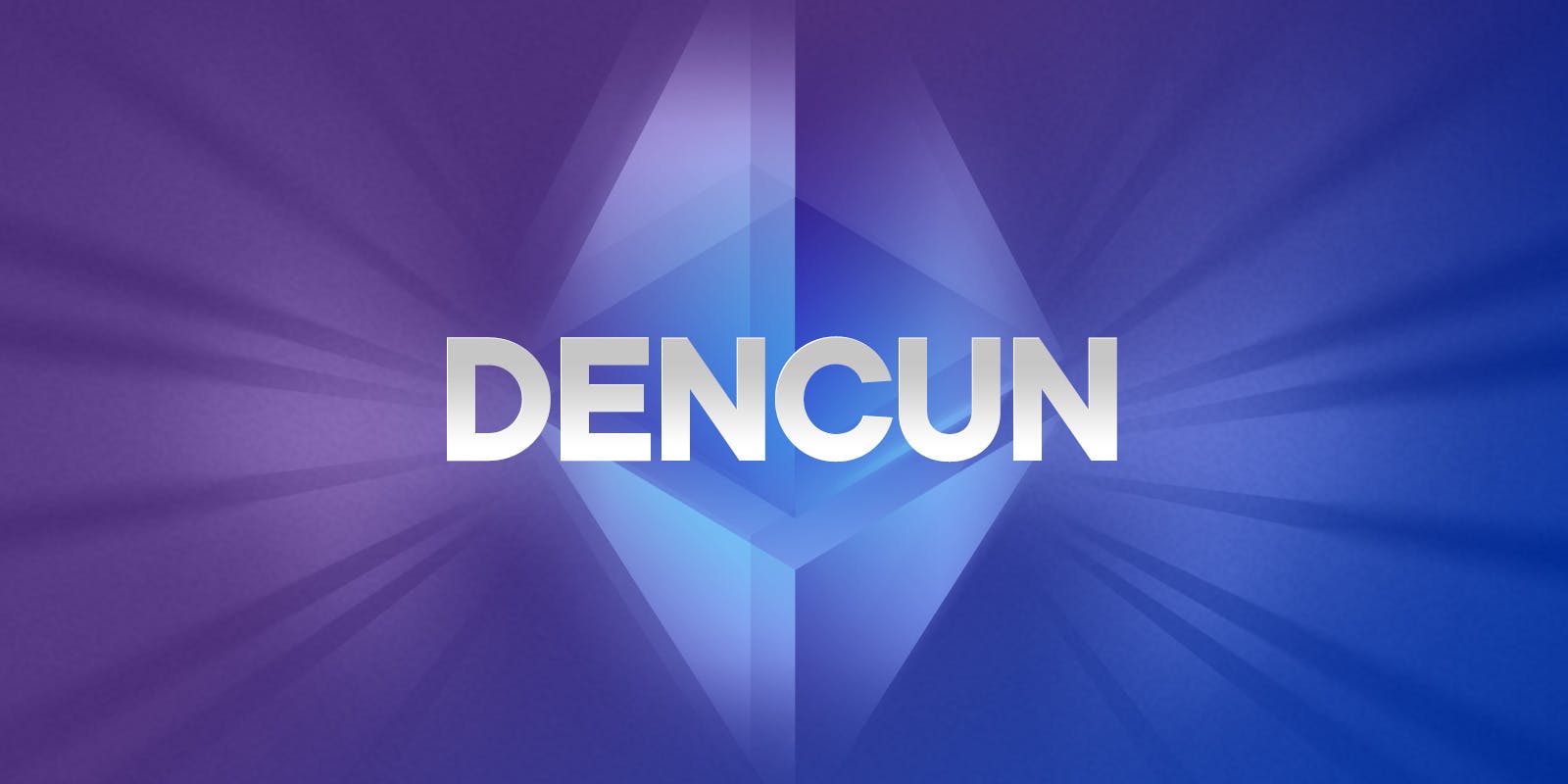Ethereum Dencun Hard Fork and The Evolution of The Ethereum Network
The Dencun Hard Fork, set for March 13, is Ethereum's eagerly awaited upgrade post-Merge. It focuses on layer-2 scaling solutions and aims to drastically lower transaction fees for layer-2 networks, enhancing Ethereum's scalability. Incorporating nine Ethereum Improvement Proposals (EIPs), Dencun merges the Cancun upgrade (execution layer improvements) with Deneb (consensus layer enhancements) to boost Ethereum's efficiency, scalability, and security. This significant upgrade promises a more scalable, efficient, and secure Ethereum network.
It’s a good time to take a closer look at Ethereum's evolution through hard forks and upgrades. Ethereum's evolution through hard forks and upgrades reflects its commitment to scalability, security, and sustainability. Starting with Homestead, Ethereum's first significant post-launch upgrade, the network has continually evolved.
The DAO Fork addressed a major security breach. Byzantium and Constantinople, parts of the Metropolis phase, introduced optimisations and prepared the network for Proof of Stake (PoS).
Ethereum layer upgrades were named after the cities where Devcons were hosted, in chronological order.
The most transformative upgrade, Ethereum 2.0 or "The Merge, " marked the shift from Proof of Work (PoW) to PoS , significantly reducing energy consumption and setting the stage for further scalability solutions. Each hard fork and upgrade signifies Ethereum's adaptability and its community's dedication to maintaining a secure, efficient, and decentralised platform.
The upcoming Dencun upgrade, eagerly anticipated since The Merge, promises to be a milestone for Ethereum, particularly for layer-2 scaling solutions. It aims to significantly reduce transaction fees on layer-2 networks and enhance Ethereum's overall scalability and efficiency. Combining improvements from the Cancun and Deneb upgrades, it focuses on both the execution and consensus layers of Ethereum, indicating a strategic enhancement of the network's scalability, efficiency, and security.
The Ethereum upgrade, while promising significant advancements, faces potential challenges. These encompass impacts on existing smart contracts and the complexities of new data storage methods. Ensuring a smooth transition necessitates rigorous testing and thoughtful implementation, crucial for maintaining stakeholder confidence throughout the upgrade process.
An Ethereum Hard Fork represents a significant update to the blockchain, akin to how the Internet functions without a centralised server. This decentralised approach allows for updates that either enhance the network or address vulnerabilities by splitting the blockchain. Similar to upgrading from Windows 10 to 11, these forks require a consensus among nodes to adopt the new version, reflecting Ethereum's commitment to evolution and security. Through various upgrades, from Homestead to The Merge, Ethereum continuously refines its ecosystem to support scalability, efficiency, and the transition to Proof of Stake, marking significant milestones in its journey.
Incorporating the Dencun upgrade and the broader Ethereum upgrade efforts into the narrative of Ethereum's evolution, the story of Ethereum is one of relentless innovation aimed at addressing the fundamental challenges of scalability, security, and efficiency. The Dencun upgrade, with its focus on layer-2 scaling solutions and a significant reduction in transaction fees, represents a critical step towards enhancing Ethereum's overall scalability and efficiency. Furthermore, the overarching Ethereum upgrade, driven by a series of Ethereum Improvement Proposals (EIPs), targets improved scalability, enhanced data storage and availability, and reduced transaction costs through mechanisms like sharding and transactions. This comprehensive upgrade strategy, including the introduction of specific types of sharding and transactions, aims to prepare the network for the future implementation of full data sharding, optimising the execution layer for increased efficiency and lower costs. As Ethereum continues to evolve with these upgrades, it reaffirms its commitment to creating a more scalable, secure, and user-friendly blockchain ecosystem poised for the challenges and opportunities of the future.
SwissBorg is fully committed to providing a smooth experience for our users. SwissBorg not only supports the Dencun hard fork through operational adjustments but also stands with the Ethereum community, fostering growth and innovation. Our commitment goes beyond platform updates; it's about empowering users and contributing to the broader ecosystem. Through seamless integration of new developments and active engagement, SwissBorg is dedicated to advancing blockchain technology alongside the Ethereum community.
List of Fork & Upgrades so far
- Frontier (July 2015) - Initial launch.
- Homestead (March 2016) - First major update.
- DAO Fork (July 2016) - Resolved DAO attack issues.
- Tangerine Whistle (October 2016) - Addressed DoS attacks.
- Spurious Dragon (November 2016) - Further security enhancements.
- Byzantium (October 2017) - Part of Metropolis, introduced privacy and scalability features.
- Constantinople/St. Petersburg (February 2019) - Performance improvements and cost adjustments.
- Istanbul (December 2019) - Increased resilience and interoperability.
- Muir Glacier (January 2020) - Delayed the difficulty bomb.
- Berlin (April 2021) - Gas cost modifications and security enhancements.
- London (August 2021) - Introduced EIP-1559 , fee market change.
- Altair (October 2021) - Beacon Chain upgrade.
- The Merge (September 2022) - Transition to Proof of Stake.
- The Shapella upgrade: Apr. 12, 2023 - addressed enhancements in Ethereum's execution component and refined the consensus aspect (agreement component).
- Dencun set for Mar 13, 2024
